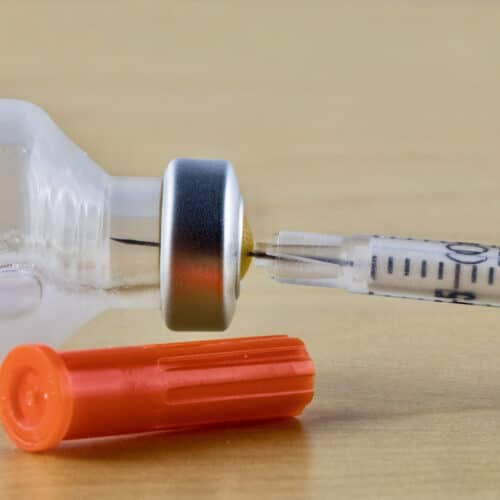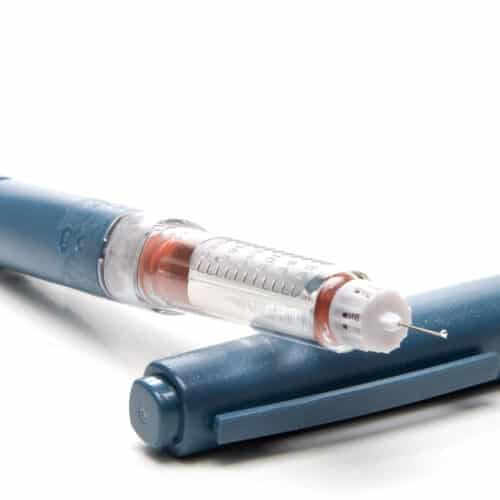New developments in diabetes drugs for Parkinson’s

At the forefront of treatments for diabetes is a class of drug called glucagon-like peptide 1 receptor (or GLP-1R) agonists. There is also now considerable laboratory research that suggests GLP-1R diabetes drugs could potentially be used in the treatment of Parkinson’s.
An agonist is a drug that activates a protein on a the outside of a cell called a receptor, which subsequently stimulates additional activity inside that cell. We know a great deal about how these drugs work in humans – they are widely used and have a very good safety record. There is also now considerable laboratory research that suggests GLP-1R diabetes drugs could potentially be used in the treatment of Parkinson’s. As a result, there are a number of clinical trial programmes seeking to evaluate the impact of different GLP-1R drugs in Parkinson’s.
Key among these clinical trials is the Bydureon ‘Exenatide-PD3’ trial, with two-substudies supported by Cure Parkinson’s and Van Andel Institute (VAI) under the International Linked Clinical Trials (iLCT) programme. This phase 3 trial, which is now underway, has been designed to evaluate the efficacy of Bydureon (exenatide) in slowing down the progression of Parkinson’s. The study will involve 200 participants who will be assessed over two years.
In addition to the Exenatide-PD3 study, there are two other clinical trials supported by Cure Parkinson’s and VAI, exploring similar diabetes drugs: liraglutide and lixisenatide. Both of these GLP-1R drugs are being tested in phase 2 clinical trials.
Other News
There are also new forms of GLP-1R drugs being tested in Parkinson’s such as Semaglutide which has been developed by Novo Nordisk and is being clinically tested in Norway. In addition, a biotech company called Neuraly has recently registered a new clinical trial for a GLP-1R drug which has been specifically designed to treat Parkinson’s. Both of these clinical trials are in the phase 2 stage.








